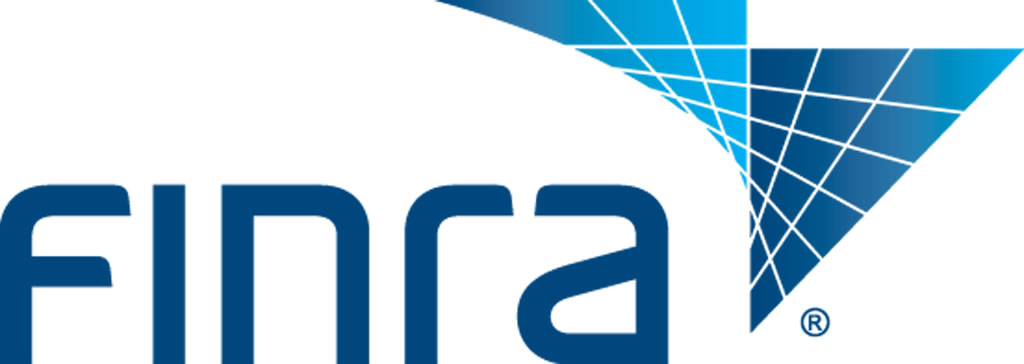Navigating the world of securities disputes can be complex and overwhelming. That’s where FINRA arbitration comes in, offering a streamlined alternative to traditional court proceedings for resolving conflicts in the financial industry.
As an essential component of investor protection, understanding this unique process is vital for anyone involved with securities or broker-dealer transactions. Curious about what makes FINRA arbitration distinct from other legal remedies? Join us as we delve into its nuts and bolts, advantages, and how you can prepare yourself should you ever need to participate in one of these specialized proceedings.
Haselkorn & Thibaut’s FINRA arbitration lawyers have over 50 years of experience. We specialize in fighting for investors to recover investment losses. Call us today for a free consultation at 1-800-856-3352.
Key Takeaways
Table of Contents
- FINRA arbitration is a widely accepted alternative dispute resolution process for securities and business disputes, providing an efficient and cost-effective way to resolve conflicts outside of court litigation.
- The FINRA arbitration process involves filing a claim, selecting arbitrators, conducting discovery and evidence gathering, presenting cases during the hearing in front of the panel of one or three arbitrators, and receiving a final award binding on all parties involved.
- Key advantages of FINRA arbitration include speedy resolutions (a few months as compared to years in court proceedings), lower costs due to simplified procedures and no juries or costly appeals processes, impartiality ensured by expert arbitrators with relevant experience in finance or securities law who are trained to remain neutral throughout the hearings. In addition, confidentiality can be maintained when desired.
Understanding FINRA Arbitration
FINRA arbitration is a method of alternative dispute resolution that differs from traditional court proceedings, often providing an efficient and cost-effective way to resolve securities and business disputes.
Definition And Purpose Of FINRA Arbitration
FINRA arbitration is a widely-accepted method of alternative dispute resolution, particularly within the securities industry. Developed and overseen by the Financial Industry Regulatory Authority (FINRA), it offers parties involved in securities disputes or business disagreements an efficient and cost-effective way to resolve their issues outside of traditional courtroom litigation.
The primary purpose of this system is to protect investors from potential fraud or mismanagement while also ensuring fairness for all parties involved. One key example includes resolving conflicts between an investor who claims they received misleading advice from a broker-dealer, causing financial loss.
Differences From Traditional Court Proceedings
FINRA arbitration is distinct from traditional court proceedings in several ways. Firstly, the arbitrator’s decision is binding and final, meaning that there are no options for appeal or retrial.
Secondly, the discovery and evidence gathering process tends to be less formal than in a courtroom setting.
Moreover, unlike traditional courtrooms where judges preside over trials, FINRA arbitration panels consist of one or three arbitrators who can make legally binding decisions on behalf of all parties involved.
There are also typically fewer rules governing procedural matters in FINRA arbitration compared to those that must be followed in a courtroom setting.
The FINRA Arbitration Process
The FINRA Arbitration Process includes filing a claim, selecting arbitrators, discovery and evidence process, conducting the hearing and receiving the final award – read on to find out more about each step.
Filing A Claim
To file a FINRA arbitration claim, the individual or firm must complete and submit a Statement of Claim to FINRA. The statement should include all relevant information about the dispute being filed, including the details of any agreements involved, dates and times of events leading to the dispute, individuals involved in the dispute, and any other pertinent information.
Once submitted, respondents have 45 days to respond with an answer that addresses each allegation made in the statement. Both parties then have an opportunity for discovery before heading into arbitration proceedings.
It is critical to gather as much evidence as possible during this stage since it can significantly impact the outcome of the case.
Selection Of Arbitrators
Arbitrator selection is an important aspect of the FINRA arbitration process. The parties involved in the dispute can choose to have a single arbitrator or a panel of three arbitrators to decide their case.
Each side is also given the opportunity to strike individuals from the list of potential arbitrators provided by FINRA.
The goal is to select independent and impartial arbitrators who will evaluate all evidence presented during the hearing fairly. Arbitrators with relevant experience in securities law or finance are highly sought after, but it’s essential for them always to remain neutral throughout proceedings, regardless of their background or history.
Discovery And Evidence Process
During the FINRA arbitration process, both parties are allowed to request and provide relevant evidence to support their case. This discovery process allows for a fair and comprehensive evaluation of the facts presented by each party.
Both written and oral testimony can be used as evidence, along with documents such as financial statements or contracts.
To ensure fairness, all evidence is shared between both parties before the hearing begins. This enables each side to examine and respond accordingly to any new evidence presented during the arbitration proceeding.
Overall, having access to an efficient discovery and evidence process helps ensure that arbitrators can evaluate cases fairly based on all available information, leading to more objective decisions with better outcomes for both sides involved in securities disputes.
Conducting The Hearing
During the FINRA arbitration hearing, both parties present their evidence and make arguments to support their positions. The arbitrators listen carefully and ask questions to better understand the case before rendering a decision.
The hearing is not as formal as a court proceeding but still follows rules of procedure and evidence. Each side has a limited amount of time to present their case, which can vary depending on the complexity of the dispute.
The arbitrators remain impartial throughout the process, making decisions based solely on the facts presented in front of them.
Receiving The Final Award
After the hearing, the arbitrators deliberate to reach a final decision on the dispute. The arbitration panel’s final award is binding and enforceable in court, just like a court judgment.
Once the final award is issued, parties must comply with its terms or face legal consequences. Arbitrators may order monetary damages, declaratory relief, and other forms of relief as appropriate.
In some cases, attorneys’ fees and expenses may also be awarded to prevailing parties.
Advantages Of FINRA Arbitration
FINRA arbitration offers a number of advantages including speedy resolution, lower costs, expertise of arbitrators, confidentiality, and flexibility in selecting location and schedule.
Speedy Resolution
One of the key advantages of FINRA arbitration is its speedy resolution. Compared to traditional court proceedings, which can drag on for months or even years, a typical FINRA arbitration case will be resolved within a few months.
This is due in part to the streamlined nature of the process and also because parties are more motivated to reach a timely resolution when they know that there are strict deadlines for completing each stage of the arbitration.
This quick resolution can provide much-needed closure for investors who have suffered losses due to securities fraud or other misconduct and allow them to move on with their lives.
Lower Costs
One of the most advantageous aspects of FINRA arbitration is its lower cost compared to traditional court proceedings. This can be attributed to the process being much simpler and streamlined, with fewer legal procedures and formalities involved.
Additionally, there are no juries or costly appeals processes in FINRA arbitration. As a result, both parties save on attorney fees, court costs, and other expenses associated with litigation.
In addition to saving money overall on legal fees, choosing FINRA over traditional courts also results in cost savings related to discovery processes and evidentiary issues that often occur during trial preparation in traditional litigation settings.

Expertise Of Arbitrators
Arbitrators are a crucial part of the FINRA arbitration process, and their expertise is one of the many advantages of this method over traditional court proceedings. Arbitrators typically have experience in fields relevant to the dispute at hand, such as law or finance, which allows them to make informed decisions based on the evidence presented during the hearing.
The arbitrators take an oath to remain neutral and approach each case with an open mind, ensuring that both parties receive a fair hearing. Additionally, unlike jury members who may lack financial knowledge or experience in traditional court proceedings, arbitrators possess a deep understanding of securities regulations and industry practices.
Confidentiality
In FINRA arbitration, parties can benefit from the confidentiality of the proceedings. Unlike traditional courtroom litigation, where evidence and testimony become part of public records, FINRA arbitration sessions are closed to the public.
This means that details about the dispute and its resolution cannot be shared with third parties without consent from both parties involved. Confidentiality in FINRA arbitration is crucial for individuals or companies who want to avoid negative publicity or reputational damage that could come with a public court proceeding.
Flexibility In Selecting Location And Schedule
One of the advantages of FINRA arbitration is the flexibility it offers in selecting the location and schedule for the arbitration hearing. Unlike traditional court proceedings that are often scheduled months or even years in advance, parties involved in FINRA arbitration can work with their arbitrators to set a date and time that works for everyone involved.
This flexibility can save time and money by avoiding expensive travel costs and allowing participants to save on lost business days. For example, suppose a group of investors has a case against an investment firm with offices located in multiple cities around the country. In that case, they may be able to choose an alternate hearing site closer to their own location.
This convenience helps reduce stress and keep the focus on preparing for the hearing rather than worrying about logistical details.
Preparing For FINRA Arbitration
To increase your chances of success in FINRA arbitration, it is essential to properly prepare and understand the rules, procedures, and strategies for the hearing.
Gather Evidence And Documentation
To succeed in FINRA arbitration, gathering evidence and documentation supporting your case is crucial. This may include documents like emails, contracts, account statements, or other relevant records detailing the dispute at hand.
Witnesses who can testify about the matter can also be essential in building your case.
Having strong supporting documentation can make a significant difference in whether or not you win your case. For example, if you are alleging securities fraud by a broker-dealer and have access to information about specific transactions where they misled you about investment risks or fees charged, this could be valuable evidence to support your claim for damages.
Hire Legal Representation
It is highly recommended that individuals hire legal representation when going through the FINRA arbitration process. This is because the process can be complicated, and having an experienced attorney on your side can significantly increase your chances of a successful outcome.
A lawyer who specializes in securities law will know the ins and outs of the arbitration process, understand how to gather evidence, write briefs, conduct cross-examinations, and advocate effectively at hearings.
Additionally, attorneys act as objective advisors who can help clients weigh their options when making critical decisions related to their case.
Understand The Rules And Procedures
To prepare for a FINRA arbitration, it’s essential to understand the rules and procedures involved. First and foremost, parties must agree to participate in arbitration instead of pursuing litigation.
Once agreed, the process begins with filing an arbitration claim with FINRA and paying associated fees. The selection of arbitrators follows, where parties can choose from public or non-public arbitrators based on their expertise and qualifications.
The discovery and evidence process then takes place before moving on to the actual hearing. During this time, both sides can present arguments, call witnesses, provide evidence, and cross-examine each other’s witnesses.
Afterward, the panel will issue a final award that is binding for all parties involved.

Attend Pre-arbitration Conferences
Before the actual FINRA arbitration hearing takes place, parties are required to attend pre-arbitration conferences. These conferences serve as a way for the arbitrators and parties to discuss the case and go over any issues that may arise during the hearing.
During these sessions, each party can present their side of the dispute and provide supporting evidence. Parties may also use this time to negotiate and try to settle their disputes out of court before going into arbitration fully.
Depending on each party’s preference and availability, these meetings can be conducted in person or virtually, adding flexibility to this process.
Develop A Strategy For The Hearing
Before the FINRA arbitration hearing, developing a strategy to increase your chances of success is crucial. This includes reviewing all available evidence and witness testimony to build a strong case for yourself.
You should also consider any potential weaknesses or challenges in your case and consider how to address them during the hearing. It’s important to be well-prepared with supporting documents and organized exhibits that clearly illustrate your point.
Additionally, practicing mock hearings with legal representation can help you feel more confident when presenting your case.
Becoming A FINRA Arbitrator
Learn about the criteria, benefits, and training process for becoming a FINRA arbitrator – discover how you can help serve the investing public and securities industry.
Criteria For Becoming An Arbitrator
To become a FINRA arbitrator, there are certain criteria that must be met. Individuals must have at least five years of professional experience in the financial industry or a related field and possess knowledge of securities regulations.
They can come from various backgrounds, such as law, accounting, or finance.
Arbitrators must also complete training programs and pass examinations before they are certified to hear cases for FINRA arbitration. Once certified, the arbitrator will be assigned cases based on their background and expertise.
Benefits And Responsibilities Of Arbitrators
Arbitrators have a significant role in the FINRA arbitration process and carry benefits and responsibilities. One of the primary benefits of being an arbitrator is that it allows individuals to serve the investing public and securities industry while gaining dispute resolution experience.
Arbitrators are typically professionals in various fields with expertise or knowledge of the securities industry.
The responsibilities of FINRA arbitrators include upholding the integrity and fairness of the arbitration process, ensuring that all parties adhere to relevant rules, determining relevant facts justly, rendering impartial decisions based only on merits presented during hearings.
Moreover, they should protect investors by promoting investor protection as well as facilitating compliance with applicable laws surrounding financial regulation.
The Training And Certification Process For Arbitrators
To become a FINRA arbitrator, individuals must meet certain criteria and complete specific training. Arbitrators are required to have at least five years of experience in the financial industry and pass a background check before applying.
Once accepted into the program, new arbitrators undergo intensive training, including online and in-person sessions. During training, they learn about securities regulations, arbitration procedures, and ethical considerations for serving as an arbitrator.
After completing their training, arbitrators are certified by FINRA to serve as panelists on cases involving broker-dealers or investors.
Although becoming a FINRA arbitrator requires dedicated effort and commitment to continuous education, many find it rewarding to be able to serve the investing public in this capacity while gaining expertise in securities dispute resolution.
FAQs About Becoming A FINRA Arbitrator
Becoming a FINRA arbitrator requires meeting specific criteria, including having relevant professional experience and passing a background check. Arbitrators must also complete training and certification before serving on cases.
The benefits of becoming an arbitrator include serving the investing public and securities industry, gaining valuable experience in alternative dispute resolution, and earning compensation for their work.
Conclusion
In conclusion, FINRA arbitration is an alternative dispute resolution process for securities and business disputes. It offers a quick, cost-effective, and confidential way to resolve conflicts between investors and broker-dealers.
The process involves selecting arbitrators who are independent of the parties involved in the dispute, conducting pre-hearing conferences, gathering evidence through discovery, conducting a hearing in front of the arbitrators where each side presents their case and witnesses can testify under oath.
The final award issued by the panel is binding on all parties involved. Becoming a FINRA arbitrator requires meeting certain criteria and going through training and certification programs.
FAQs:
What is FINRA arbitration, and how does it work?
FINRA arbitration is a dispute resolution process that allows investors to seek compensation for harm caused by their broker or brokerage firm. It involves a panel of unbiased arbitrators who hear both sides of the case and make a binding decision.
Is FINRA arbitration required in all investment disputes?
Participation in FINRA arbitration is typically voluntary but may be required if the investor signs an agreement with the broker or securities firm mandating this form of dispute resolution.
Can I represent myself in a FINRA arbitration case?
Yes, you have the right to represent yourself during the proceedings. Still, it’s recommended that you engage an experienced attorney since these cases are complex and involve legal procedures which can be difficult to navigate without guidance from someone familiar with them.
How long does it take to resolve a FINRA arbitration case?
The length of time needed to reach a final decision varies depending on numerous factors, such as the complexity of issues raised & volume pending before arbitrator panels at any given time typically takes anywhere between 1-2 years. However, some cases will conclude within just a few months while others could take longer than two years; this depends upon specific facts and context surrounding each matter brought forward accordingly, including whether parties choose alternate means of resolving disputes beyond traditional litigation-based processes.


